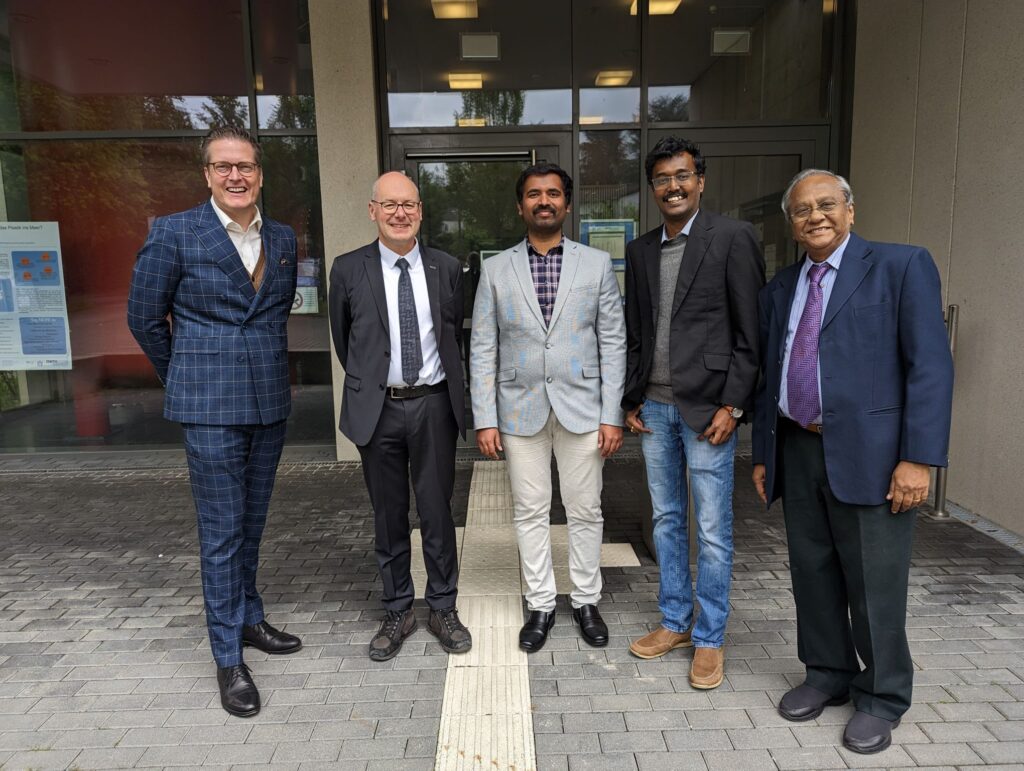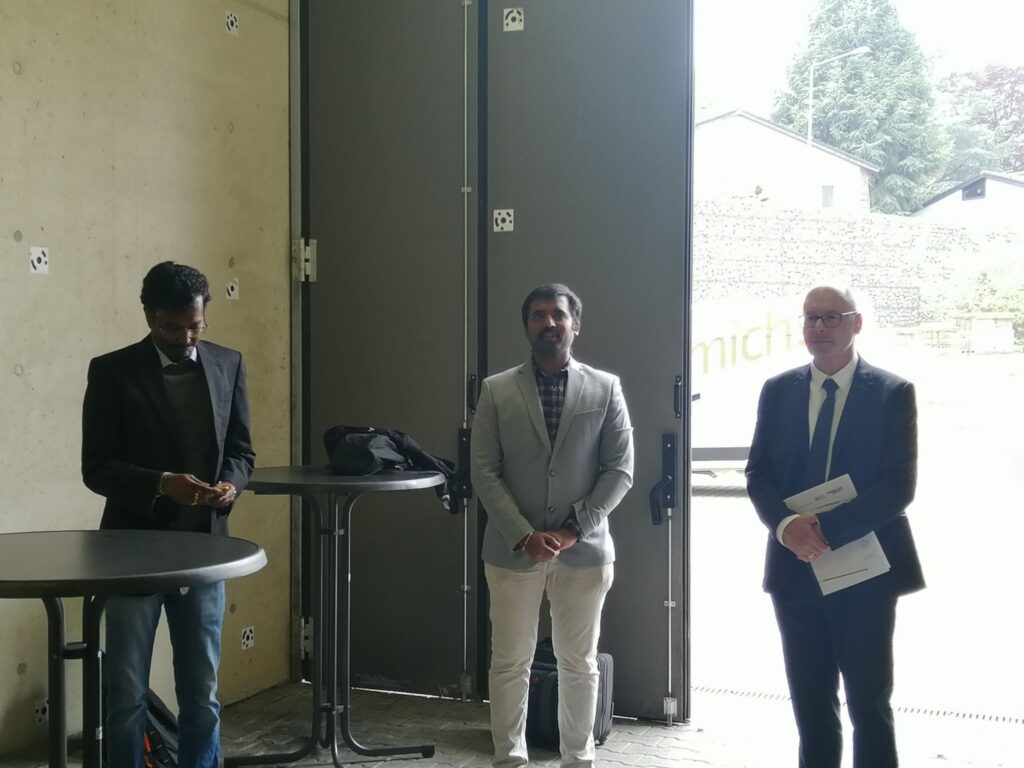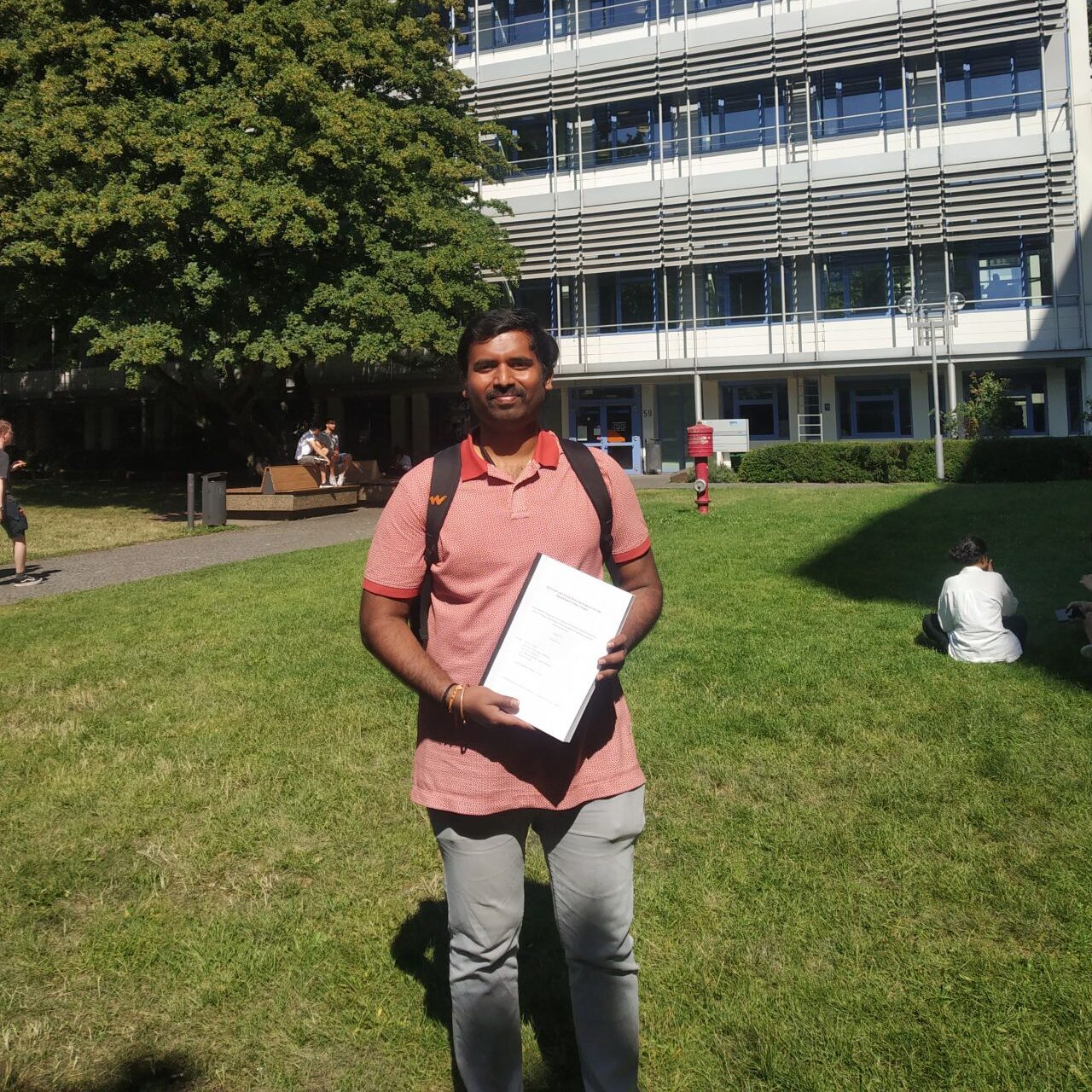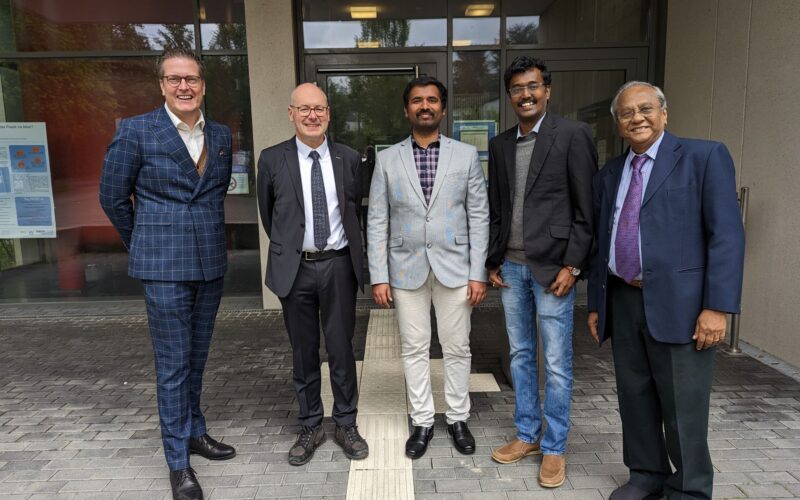Dr.-Ing. Harish Selvam is a Research Associate at the Institute of Hydraulic Engineering and Water Resources Management (IWW), at RWTH Aachen University and was a joint doctoral student from the Department of Ocean Engineering (DOE), IIT Madras (IITM). He is involved in research related to tsunami interaction with rectangular buildings and developing design equations for buildings subjected to tsunami loads. Harish shares his experience with the Indo-German Centre for Sustainability (IGCS) in his journey toward obtaining his doctoral degree.
The IGCS team had the opportunity to interview Harish and discuss aspects of his academic and research life, his decision to pursue a joint doctoral program, the differences and similarities between his experiences at RWTH Aachen and IIT Madras. He also shares his influence of the joint doctoral program on his future career prospects. Additionally, Harish provides advice for prospective joint doctoral program candidates and offers suggestions for funding opportunities and life in Germany.
Here is the full interview:
IGCS: Please introduce yourself.
Dr.-Ing. Harish Selvam, Research Associate at the Institute of Hydraulic Engineering and Water Resources Management (IWW), RWTH Aachen University. I was a joint doctoral student between the Department of Ocean Engineering (DOE), IIT Madras (IITM). I worked under Prof. V. Sriram (DOE), Prof. S. A. Sannasiraj (DOE) and Prof. Holger Schüttrumpf on the PhD research topic entitled “Tsunami-like flow induced forces on the shorefront structures.” This research aimed to understand the tsunami interaction with rectangular buildings and develop design equations for buildings subjected to tsunami load.
IGCS: Please tell us more about your journey towards your doctoral degree. Tell us both about your time at IIT Madras and RWTH Aachen University how did your research stay at both the institutions differ from each other and where did you find similarities?
My PhD story started on the 27th of December, 2016. I started my career as a “Master of Science (MS)” student at DOE, IITM. IITM offers excellent opportunities for students with good academic excellence in MS or M.Tech. Upgrading MS to PhD without completing MS (under the Dual degree scheme) is possible. I was one such dual degree student. While continuing my research at IITM, I got an opportunity through IGCS short-term fellowship to visit IWW, RWTH Aachen. Thanks to the IGCS centre for selecting me, which seeded my research in Aachen. Later, I extended my stay in Aachen through scholarships such as IIT Madras – RWTH (Indo-German Program), IGCS long-term research fellowship, RWTH – IIT Madras University Junior Research fellowships and ABCD Future Environmental Leaders Scholarship. I hereby would like to thank all the funding agencies for supporting my research stay at RWTH.
Time at IITM and RWTH I did not feel much difference in academic life at both universities. I lived on a residential campus also home to many animals (Deer, Macaque, Monkeys and other rare animals). In terms of work life, at IITM, I start my day at 9:00 A.M. I spend my day reading literature, conducting experiments or analyzing the results, carrying out numerical simulations, etc. In addition, I regularly met my Professors to update my research progress. Other than that, I have spent much time discussing with our colleagues related to research. Sometimes, those discussions ran for hours. I, in fact, worked late nights at the institute. Nevertheless, RWTH Aachen is unique in its own way. It took me some time to adapt to the silent work environment. However, I started liking it now. I feel a perfect “Work-life balance” in Germany (overall), which kept me mentally strong during the hard days of my Ph.D. The regular routine remained the same. Overall, one cannot examine and compare both systems.

IGCS: Why did you decide to go for a joint doctoral degree program and how do you think it affected your future career perspectives?
During my initial days at IIT Madras, I was very much fascinated to see my colleagues involved in healthy collaborative research at the foreign university. It was the motivating factor behind me to apply for the exchange program at RWTH Aachen. In addition, I also knew that IWW has a unique tsunami-generating flume in the laboratory space, which interested me a lot since I work on the same research topic. Also, I knew both universities have a healthy research tie-up. Both professors were interested in the topic I was working on for my Ph. D., which eased my application to the joint doctoral program (JDP). Furthermore, JDP promoted a strong research exchange between both institutes.
In addition to the academic point of view, JDP has so much of a reputation in the outside world since I am one of the few individuals to receive a joint degree from a leading research institution. Of course, this has a positive effect on my career since I would like to stay in academics and research. I am well-recognized among research communities both in India and Germany. Overall, I am pleased to receive a joint degree from both universities.
IGCS: What is your advice for prospective joint doctoral program candidates? What advice can you offer regarding funding of the stay and life in Germany?
I shall share my suggestions for funding the stay and life in Germany. Germany is gorgeous. It is getting technologically advanced day by day. When you are in Germany, I suggest you utilize the opportunity to the fullest. Get yourself involved in the research activities happening at the university. RWTH professors, in general, are friendly. They are interested in improving the collaboration activities between India and Germany.
Hence, if you would like to continue staying in Germany, you could contact the international office at RWTH for possible fellowships. You can also check with IGCS for possible fellowships or scholarships. In addition, you could also check the DAAD website for possible scholarships. I think there are several such possibilities. For any scholarship, an excellent proposal is mandatory. Prepare a nice proposal mentioning why you would like to stay at RWTH. I think that is really important. Furthermore, based on the scholarship agreement, you could also work part-time at the institute, for which you should check with your Professor or the person in charge. If you have further doubts, please don’t hesitate to reach me through LinkedIn [à] or email [à].
Thank you for the opportunity to express my gratitude and thanks to IGCS!



